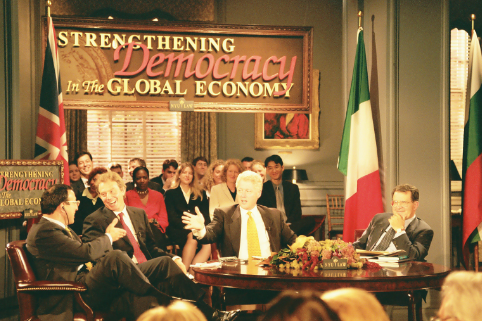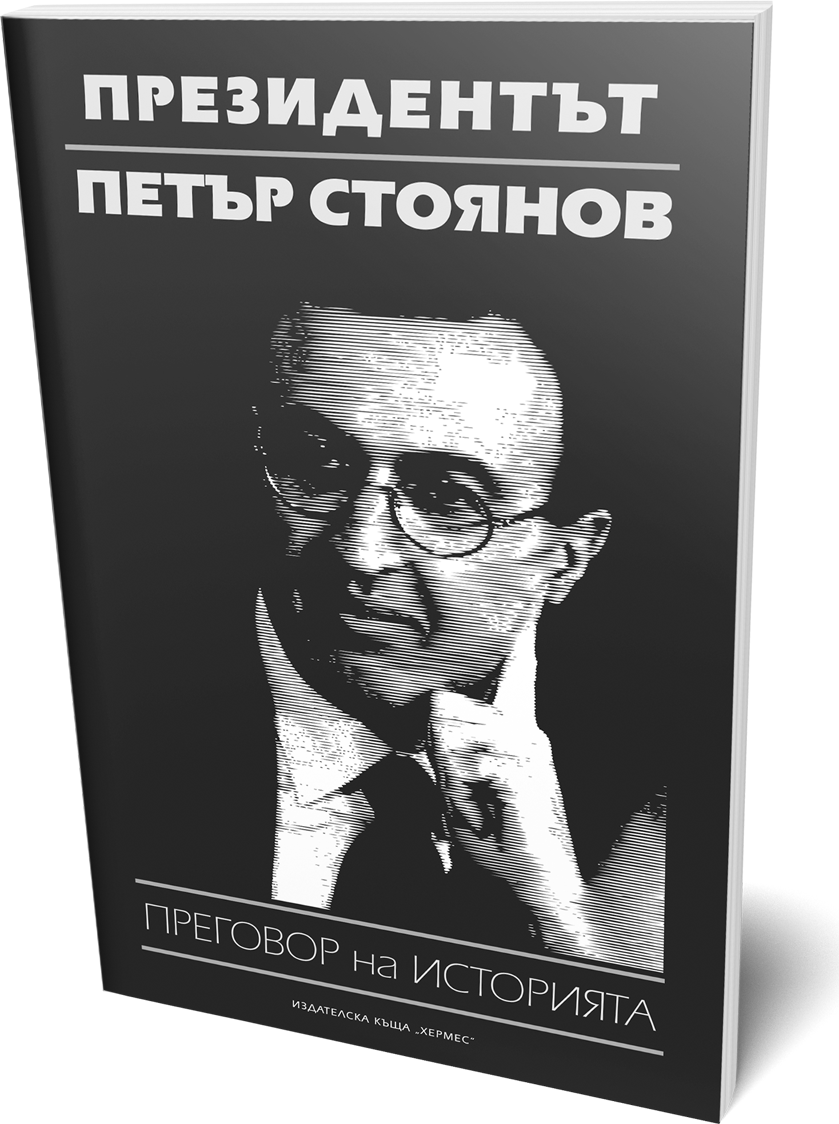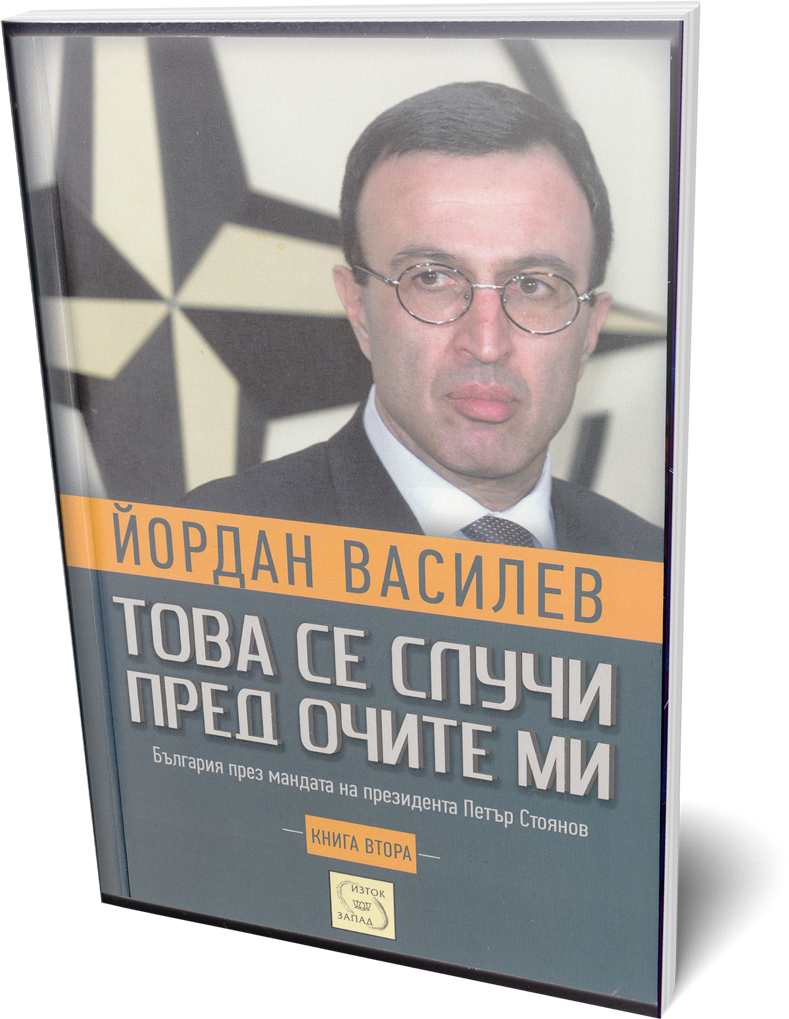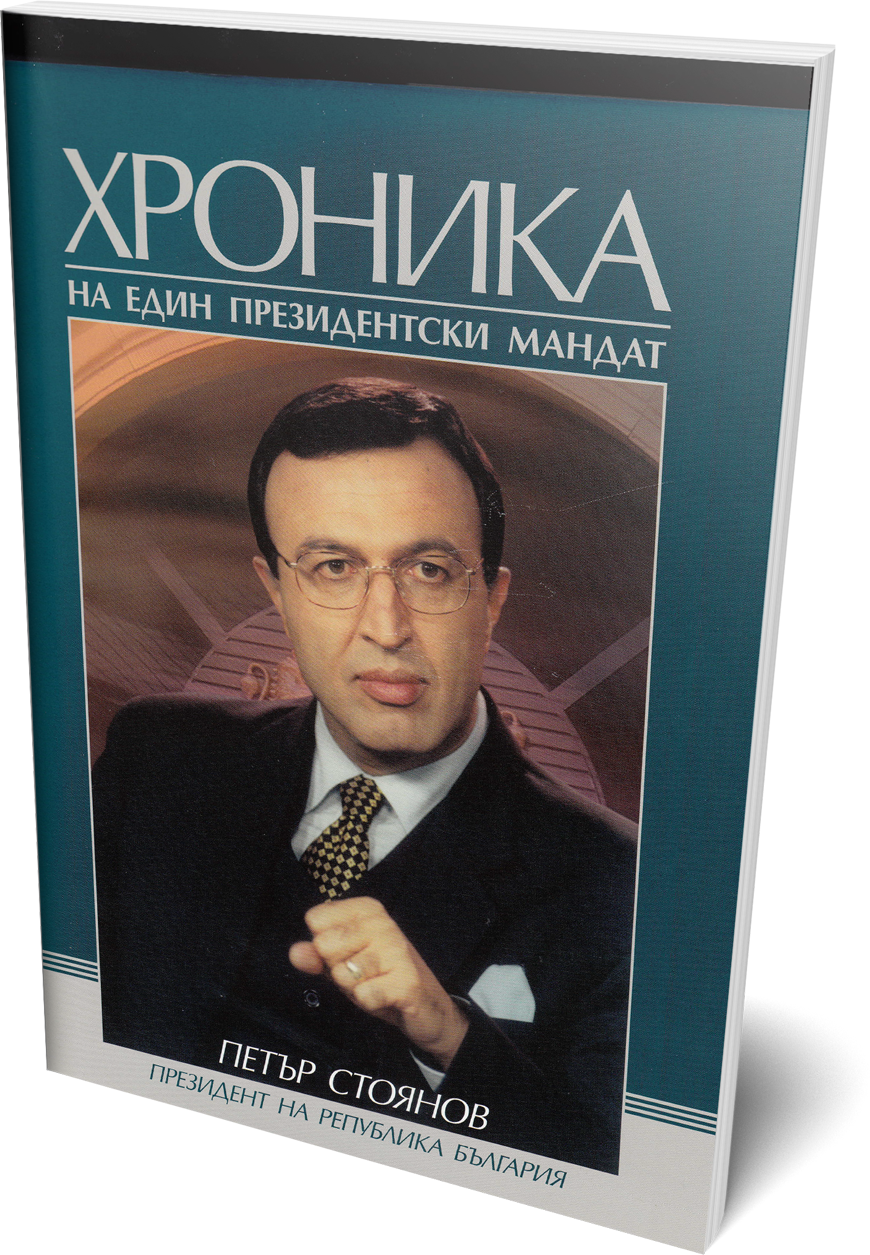On September 22, 1998, US President Clinton invited, as he himself stated, “three of his friends from Europe” to open together the academic year at New York University. The three guests are Romano Prodi, Tony Blair and Petar Stoyanov and this allows the Bulgarian president to directly lobby the American media fro the cause of Bulgaria, but also to make personal friends with Clinton, Blair and Prodi (President of the European Commission from 1999 to 2004).

Your Excellencies,
Ladies and Gentlemen,
I am glad to be here today, addressing this audience of bright young academics!
I thank the organizers for the invitation to participate in this prestigious forum in such a distinguished company of world leaders!
Recently, during a conference in Yalta I had a chance to sit for a moment, filled with awe, at the table where over half a century ago the political map of the world was redrawn. Together with me was a person I truly respect, President Shevardnadze of Georgia. He was the Soviet Foreign Minister at the time of the lifting of the Iron Curtain, which, incidentally, was dropped 53 years ago by another Georgian, changing dramatically the destinies of two generations of Eastern Europeans.
In fact, both the lifting of the Iron Curtain and the enlargement of democratic Europe occurred rather unexpectedly: not by war or territorial conquest. Just the opposite: the countries of Eastern Europe themselves, especially at the end of the 1980s, demonstrated a clear wish to rejoin the European democratic space after the post-world-war-two political reshaping of the Old Continent had wrenched them away from there.
In mankind’s earlier history victors held by force the status quo they had imposed. Now the situation is reversed.
More than just opting for the change, the “cold war” losers of the Eastern communist bloc have been making a huge effort to remain a part of the new status quo. Contrary to earlier historic patterns this makes the victors feel somewhat insecure or even baffled by the eager desire of the vanquished for integration with their victors.
But the post-war developments have followed their own logic.
For more than 45 years the generation of my parents was doomed to communism against their will. The Bulgarians, like the other Eastern Europeans, had no say in the political recasting of Europe. This is why I beg to differ with those referring to my country as to “the most loyal satellite” of the Soviet Union; a country that has experienced neither the Hungarian revolution of 1956 nor the Prague spring of 1968. The reaction of the Bulgarian population, notably the intelligentsia, to the Sovietization of their country was extremely negative. The regime in no other European country has undertaken such ruthless reprisals against its dissenters.
After the Soviet occupation, 2 618 (two thousand six hundred and eighteen) death sentences were officially handed out in Bulgaria. According to Mark Attridge, special envoy of the US Secretary of State, the executions, including those without trial, were between 20 and 30 000. The interior minister of the former communist party admitted in 1990 that 184 360 (one hundred eighty four thousand three hundred and sixty) people had been sent to concentration camps. Mind you, in a country of seven million at that time!
Understandably, this generation still harbors fears of a possible resurrection of the Yalta syndrome. None of them would like to see another whimsical turn of history frustrating a people’s sovereign choice to remain forever a member of the democratic family of nations. Moreover, such a choice deserves the understanding, cooperation and support of that family.
Over the past ten years my country has gained an interesting political experience, an experience making us optimists as much as realists. For we have gone through all stages of a post-communist transition:
– post-communist euphoria when, upon the collapse of the Berlin Wall, we believed that the worst was behind us and, in a matter of several years, we would align with countries like Switzerland.
– post-communist nostalgia induced by the early hardships of the reform.
– post-communist inaction when genuine reforms stopped or were substituted by pseudo reforms; when corruption and inflation were rampant and economic growth was negative;
– and, thank God, the final break with the post- communist illusions and a realization that the radical reforms are a bitter medicine, yet they are the only effective cure.
And if here today I speak of the irreversibility of the democratic processes in my country, it is because we have already left behind us all phases of the post communist transition. Our bitter experience has made us equally immune to post communist illusions and unrealistic hopes for the future. We are aware that the road we have embarked upon will be long and hard but we are determined to stick it out.
Today Bulgaria enjoys a political constellation almost unique for Eastern Europe: a reform-minded government with an absolute parliamentary majority even within its own party, a supportive president and an understanding public. This gives us leeway to plan over a wider horizon the building of a modern, advanced state with a sustainable democratic political system based on the rule of law and a viable market economy. The state we are working for must be a respectable member of the European Union and NATO, sharing these organizations’ value system and actively contributing to their development and stability.
Our trust in the correctness of the chosen road is founded in the credit of confidence we receive from the public at the moment. This is a credit that should not be squandered irresponsibly in the Eastern European territories, newly reclaimed by democracy.
I believe that supporting and assisting democracy is a profitable long-term investment. Economic investment is vital, of course, but no less important in these crucial times of transition is an investment of solidarity and understanding! Recalling the Marshall Plan and the part it played in its time I feel tempted to make the following comment: the Plan’s vast importance lay not only in baling out the economies of war-ravaged Western Europe but also in salvaging democracy and freedom for millions of human beings.
The present crisis in Russia graphically shows how vulnerable the new democratic spaces still are. It is not just the repercussions of a possible economic and financial collapse which is already casting a shadow over the investment climate. By far more important is the potential impact of crises like in Russia or Kosovo on the overall processes unfolding in the countries of the former socialist bloc. The irreversibility of our cultural choice and our aspiration for European and Atlantic integration must not be questioned. However, the irreversibility of our democratic transition is not only our historic responsibility! It is a shared responsibility of the whole democratic world!
This is the question we are facing today regardless of our countries’ national specifics in the East of in the West: is the simultaneous achievement of our objectives of economic growth, democracy and social welfare feasible? And can a country in this interdependent and globalizing world achieve this triple goal single-handedly?
The clue to the solution of this problem I see in the expansion of the democratic space on our planet leaving out ever fewer territories.
This is the historic responsibility of the whole free world today!
Thank you for your attention!








